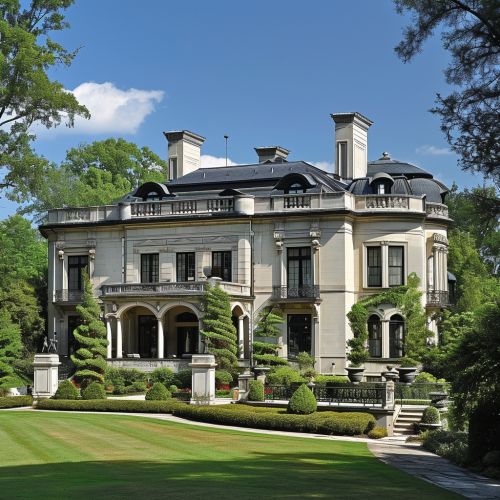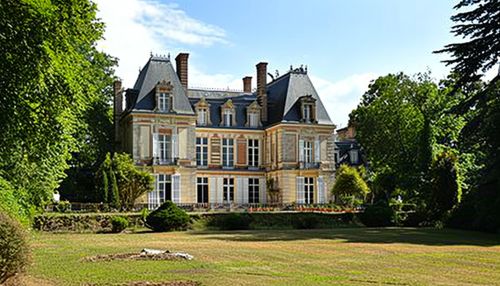Noble house
Origins and Development
A noble house refers to a family or extended kin group, often of high social status, that traditionally played a significant role in the governance and leadership of societies, particularly in feudal systems. The concept of the noble house is deeply rooted in the history of human civilization, tracing back to ancient times when tribal chiefs and their families were recognized as leaders due to their prowess in battle, wisdom, or divine lineage.


The development of noble houses is closely tied to the evolution of political systems and societal structures. In the early stages of human societies, leadership was often based on physical strength or spiritual authority. However, as societies grew more complex, the need for stable leadership structures led to the establishment of hereditary leadership, giving birth to the concept of nobility and, consequently, noble houses.
Characteristics
Noble houses are characterized by their hereditary social status, often associated with titles of nobility such as duke, count, or baron. These titles, passed down from generation to generation, signify the house's standing within the social hierarchy. In addition to their titles, noble houses often possess vast tracts of land, wealth, and political influence. They typically reside in grand residences or castles, symbols of their power and prestige.
The members of a noble house are bound by a shared lineage and a common coat of arms, which serves as a visual representation of the family's history and achievements. The coat of arms, often emblazoned on shields, banners, and seals, is a distinctive feature of noble houses and plays a crucial role in heraldry, the study of armorial bearings.
Role in Society
Noble houses have traditionally played a significant role in the governance of societies. In feudal systems, for example, noble houses were granted lands by the monarch in exchange for military service. These lands, known as fiefs, were worked by serfs or peasants, who in return received protection from the noble house. This system, known as feudalism, formed the backbone of medieval European societies and was replicated in various forms across the world.
In addition to their military obligations, noble houses often held judicial and administrative powers within their fiefs. They were responsible for maintaining law and order, collecting taxes, and overseeing the welfare of their subjects. In many cases, the head of the noble house served as a vassal to a higher-ranking noble or the monarch, forming a complex web of loyalties and obligations that underpinned the feudal system.
Notable Noble Houses
Throughout history, numerous noble houses have left their mark on society, shaping the course of history through their actions. Some of the most notable include the House of Plantagenet in England, the House of Habsburg in Austria, and the House of Bourbon in France. These houses produced numerous monarchs who ruled over vast empires, influencing the cultural, political, and economic landscape of their respective regions.
The House of Plantagenet, for example, ruled England for over three centuries, producing such notable monarchs as Richard the Lionheart and Henry V. Their reign saw significant developments in English law and government, as well as the expansion of English territories through conquest and marriage alliances.
Similarly, the House of Habsburg was one of the most influential noble houses in European history. At the height of their power, the Habsburgs ruled over a vast empire that included Austria, Spain, parts of France, and numerous territories in Central and Eastern Europe. Their strategic marriages and diplomatic maneuvers helped them maintain their power for centuries, shaping the political landscape of Europe.
Modern Role and Influence
While the traditional roles of noble houses have largely diminished with the advent of modern political systems, many noble houses continue to hold symbolic and, in some cases, practical influence in society. In constitutional monarchies such as the United Kingdom, Spain, and Japan, noble houses still hold ceremonial roles and are often involved in charitable activities and public service.
In some societies, noble houses have adapted to the modern world by engaging in business and politics. Members of these houses often leverage their family's historical prestige and connections to gain influence in these spheres. Despite the changes in their roles and functions, noble houses remain a fascinating subject of study, offering insights into the historical, cultural, and social dynamics of societies.
